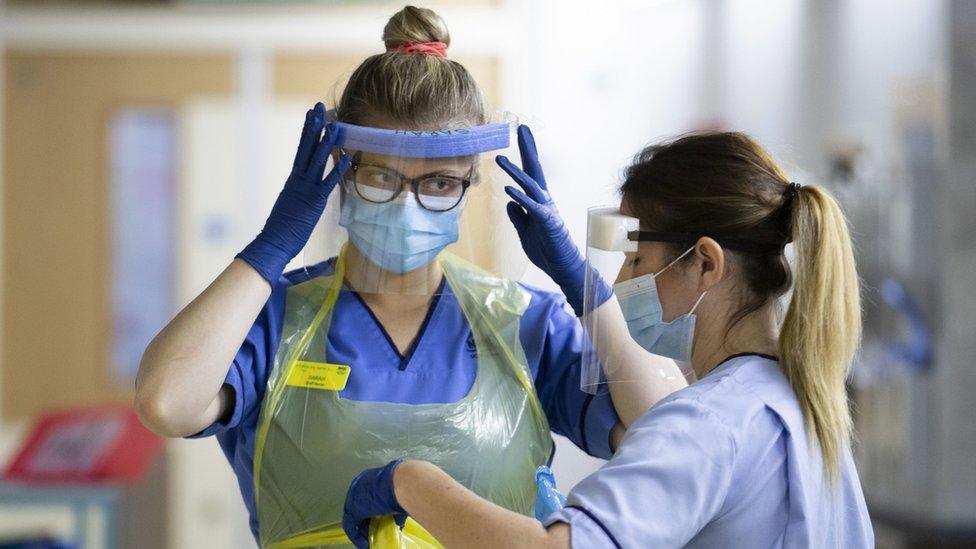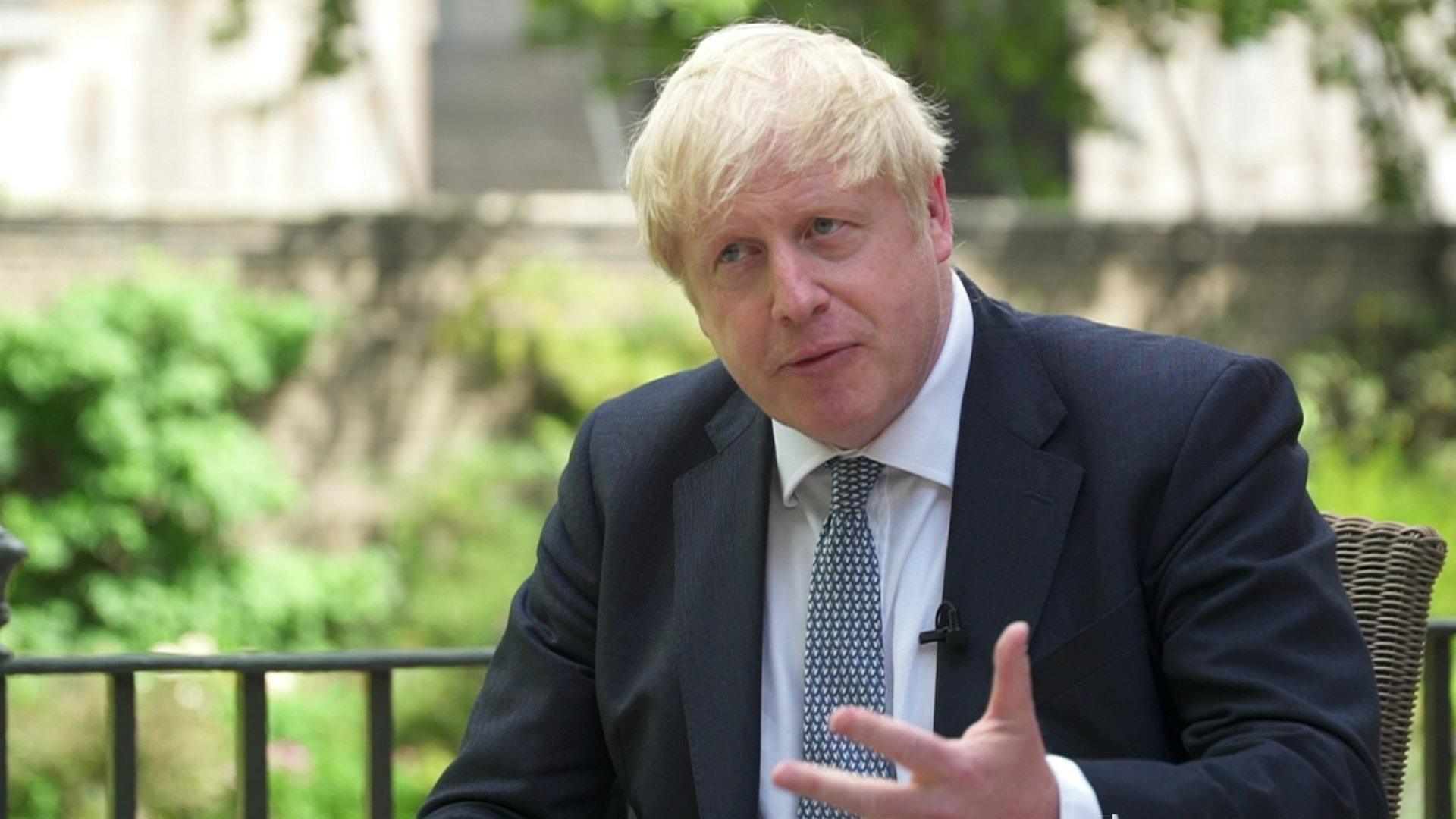Covid: Labour urges 'germ games' to plan for pandemics
- Published
- comments

The government should hold annual planning exercises to prepare for future pandemics, Labour's shadow health secretary has said.
Jonathan Ashworth said "germ games", modelled on yearly military drills, could help prepare the UK for an "era of pandemics".
He said an independent body should audit the plans, as is done with annual spending.
The government said its proposals would "supercharge" planning for the future.
In a speech to the IPPR think tank, Mr Ashworth said ministers had been "unprepared, complacent and inept" when dealing with the Covid crisis.
He added that academic discussions about the threat posed by new diseases had "rarely surfaced in Westminster" and "that has to change".
Mr Ashworth also criticised the Conservatives' record on public health spending since 2010, arguing it had led to a worse death toll in the UK.
"Years of cuts to public services and austerity left our health and care services lacking the capacity needed when disaster struck," he said.
"Covid hit a population with millions of people in poor health, in poor housing and with job and income insecurity," he added.
"A healthier, more equal society would have weathered the storms better."
'Learning on the job'
Warning that climate change and globalisation had increased the pandemic threat, he said the UK needed to dramatically improve its disease planning.
He said preparation done by the new National Institute for Health Protection, which is replacing Public Health England, should face independent scrutiny.
And he called for a new agency to conduct this - similar to the Office for Budget Responsibility, which vets the government's annual spending plans.
"Governments rightly invest in defence planning and 'war games'. Practising for pandemics should be no different," he said.
"Ministers should 'germ game' on an annual basis, to prepare themselves and the country for the next pandemic or infectious outbreak.
"Never again should we have ministers ignoring the science and learning on the job."

The government has been criticised for failing to adequately stockpile protective equipment
The government says it regularly plans for new infectious diseases and seeks to learn the lessons of previous outbreaks.
Since it was first published in 2008, its National Risk Register, external has identified a pandemic as the most serious threat facing the country.
But its planning has faced criticism from Phillip Lee, who was a Conservative minister during a 2016 simulation of an influenza pandemic in England.
Mr Lee, who went on to become a Lib Dem MP, said last April that the three-day operation, known as "Exercise Cygnus", had revealed weaknesses in areas such as testing capacity and buying protective equipment.
He said a failure to learn lessons from that exercise had led to "panic decisions" - and it had been a "mistake" not to publish the findings.
'Swift action'
Responding to Mr Ashworth's speech, a Department of Health and Social Care spokesperson said Covid had "challenged health systems around the world".
"Our response has always been informed by the latest advice from our scientists and, we have taken swift action when new evidence has emerged," they said.
The added that the government had now established the "largest diagnostics network in UK history" and the NHS's "biggest-ever mass vaccination campaign".
Meanwhile "almost half" the data sent to the World Health Organization to map the evolution of the coronavirus had come from the UK, they added.
"We are already looking to our future preparedness, and through the new National Institute for Health Protection we will supercharge our response to health threats, both now and in the future."
- Published20 July 2020

- Published24 July 2020
